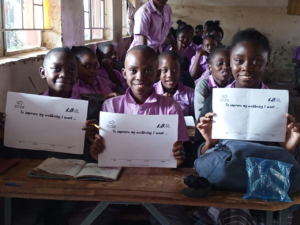Self-Care Management: A Crucial Approach to Sexual and Reproductive Health in Zambia
Sexual and reproductive health (SRH) is a cornerstone of public health. As social and sexual beings, humans are naturally drawn to sexual activity. Unfortunately, unsafe sexual practices remain a leading cause of HIV and other sexually transmitted infections (STIs) in Zambia.
The 2018 Zambia Demographic Health Survey revealed a concerning reality: 7% of girls and 16.3% of boys become sexually active before the age of 15. These young people continue to be sexually active throughout their lives.
The Need for Comprehensive Sexuality Education (CSE)
Since sexual relations cannot be regulated (and shouldn’t be for anyone above the age of consent), the dissemination of age-appropriate, comprehensive SRH information is crucial. It’s a common misconception that adults possess accurate SRH knowledge. Comprehensive sexuality education benefits everyone, regardless of age.
Self-Care Management as a Tool for SRH
Self-care management plays a vital role in combating STIs, including HIV, and preventing unplanned pregnancies. Unplanned pregnancies might lead to unsafe abortions, a significant public health concern. The Zambian Ministry of Health reports that 50% of gynecological admissions result from unsafe abortions, with 80% of these cases occurring among adolescents.
These statistics highlight the urgent need for community-led advocacy on self-care, focusing on access to SRH information and services.
Challenges and Solutions
The information and service gap in SRH creates a major obstacle to self-care management. One group of adolescents struggles with access to information and understanding of SRH services offered at health facilities. Another knowledgeable group struggles with access to services due to commodity stockouts, stigma associated with SRH, and the distance between their homes and health facilities. Adolescents and young people cannot effectively practice self-care management when faced with:
- Continuous stockouts of essential commodities in health facilities.
- Negative attitudes towards adolescents and young people by healthcare providers.
- Significant distances between health facilities and their residences.
Copper Rose Zambia’s Efforts
Through the You(th) Care project sponsored by Aidsfonds, Copper Rose Zambia has been actively working to improve SRH outcomes for adolescents and young people:
- Supporting youth-friendly spaces in various health facilities.
- Conducting community outreach programs.
- Distributing contraceptives such as condoms.
- Linking adolescents and young people to health facilities.
Empowerment Through Information
Health-safe sexual behaviours among young people directly impact HIV and STI prevalence, unintended pregnancies, and overall access to SRH services. The more adolescents and young people understand their bodies and sexual health, the higher the chances for making better choices and decisions. Smart decisions are only possible when one is well informed.
While abstinence is a valid choice, it’s crucial to have access to comprehensive SRH information to make informed decisions. Abstinence without proper knowledge leaves adolescents vulnerable to misinformation and risky behaviour.
The Importance of Self-Care Management
Accessing, accepting, and applying comprehensive SRH information is the first step towards effective self-care management. Understanding your body, your rights, available health services, and social resources is critical for ensuring your well-being, regardless of your current sexual activity level.
Knowledge is Power: Sharing the Responsibility
The saying “knowledge is power” is true. However, in today’s world, knowledge is only as powerful as your ability to apply it and share it with others. Effective self-care management is built on a strong foundation of accurate knowledge. The more you know, the better you understand, and the more you share, the safer you are as an individual and safer the community is.
Article by
Emmanuel John Kachakwale


